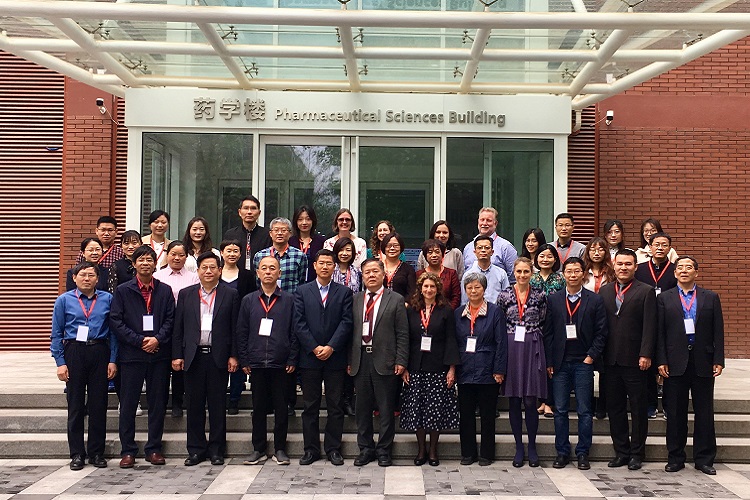21 May 2019
The University of Bristol along with Peking University and a consortium of partners has launched the ‘UK-China AMR Partnership Programme on strategies to reduce the burden of antibiotic resistance in China’.

Antimicrobial resistance (AMR), particularly the resistance to antibiotic medicine is one of the most pressing public health challenges of the twenty-first century. Estimates suggest that by 2050 AMR will be responsible for 10 million deaths. It is expected that deaths related to AMR could reduce Gross Domestic Product and go on to cost the world up to $100 trillion USD.
The UK-China AMR Programme is a collaborative research and training programme that will bring together leading experts in the UK and China to tackle antibiotic resistance, the type of AMR identified as most critical to human health.
The programme will conduct research that will deliver key evidence that is required to enhance the success of antibiotic resistance reduction strategies in China. Three linked projects will investigate behavioural, economic and environmental aspects of antibiotic resistance. This will involve measuring human exposure to antibiotics (from environmental and livestock sources) and documenting patterns of antibiotic use in health care; designing a tailored intervention for China and produce evidence-based recommendations to modify antibiotic prescribing behaviour, in order to reduce antibiotic consumption; and estimating the cost-effectiveness of different intervention strategies, as well as the economic burden of AMR to the country.
Professor Helen Lambert, Professor of Medical Anthropology at the University of Bristol, and Professor Bo Zheng, Peking University First Hospital, will lead the partnership and have designed the project to ensure it delivers an interdisciplinary approach that establishes sustainable partnerships. Anhui Medical University and Fudan University will also lead specific work packages across the programme, with UK contributions from the University Southampton, the University of Leicester and the University of Bath, Public Health England and North Bristol NHS Trust.
Professor Lambert, Principal Investigator said:“This exciting new partnership provides an exceptional opportunity for researchers from the UK and China to collaborate on important new research that will help to save lives and alleviate the significant social and economic burden of antibiotic resistance in China.
To tackle this complex public health problem, we are bringing together experts from multiple disciplines across health, policy, environmental and social sciences and helping to enhance China’s capacity to carry out interdisciplinary research.”
Professor Zheng, Principal Investigator, said: “AMR is a serious challenge not only in China, but also for the entire humankind. China, with the largest population in the world, has recognised the impact of AMR on the health of people as well as the national economy for a long time. China has developed many policies in terms of rational use of antibiotics and confining AMR.
The UK as a developed country, is fully experienced in the research areas such as the impact of AMR on economy, rational use of antibiotics. I believe that under the strong support of Chinese government, with the help of UK colleagues, by joint contribution of the experts from two countries, our programme will definitely help us better understand the impact of AMR, explore a practical strategy to confine AMR, provide experience for other countries, and further benefit the humankind as a whole.”
It is expected that the programme will produce the first national estimates of the economic burden of AMR among certain diseases and a clearer understanding of the situation for one of the world’s largest consumers of antibiotics, providing essential information for China and the world on the impact of AMR, building upon the global picture of the challenge.
The programme is one of four UK-China Programmes for AMR research awarded by the Newton Fund under a joint UK Research and Innovation (UKRI) – National Natural Science Foundation of China (NSFC) funding initiative.
Further information
The £8 million GBP investment by the UKRI AMR Cross Council Initiative through the Newton Fund and 36 million RMB from the National Natural Science Foundation of China (NSFC) will support new interdisciplinary China-UK AMR partnership Programmes.
The four winning collaborations, with teams led by the University of Warwick and the Chinese Academy of Sciences; the University of Bristol and Peking University Health Science Centre; Cardiff University and China Agricultural University; and the University of Birmingham and Zhejiang University, bring together leading researchers from both countries to explore and address influential factors of antibacterial resistance in China.
See the project web page: Strategies to reduce the burden of antibiotic resistance in China